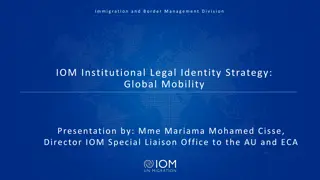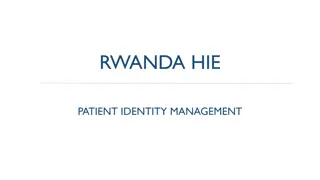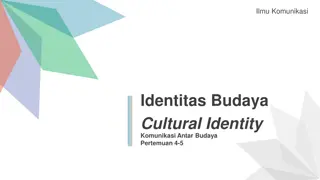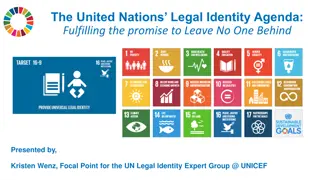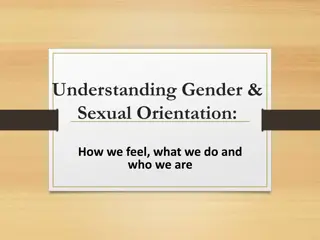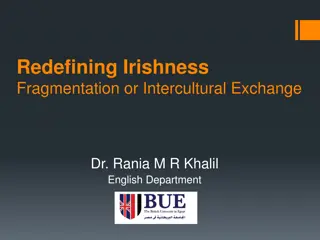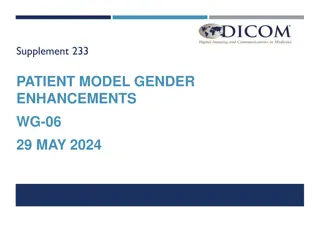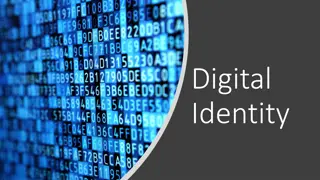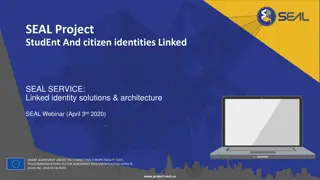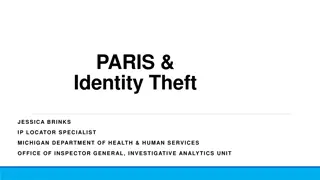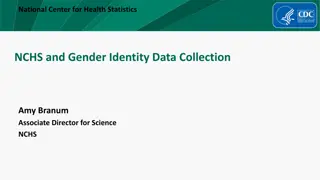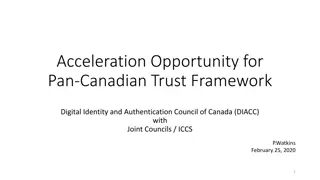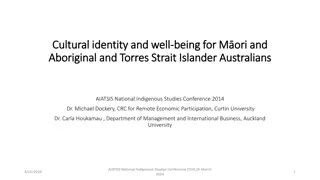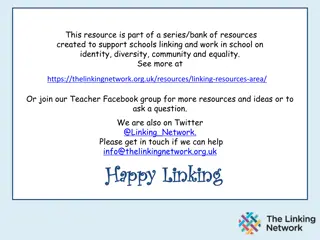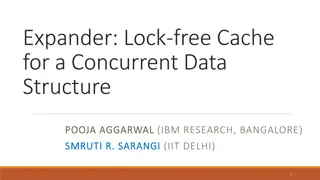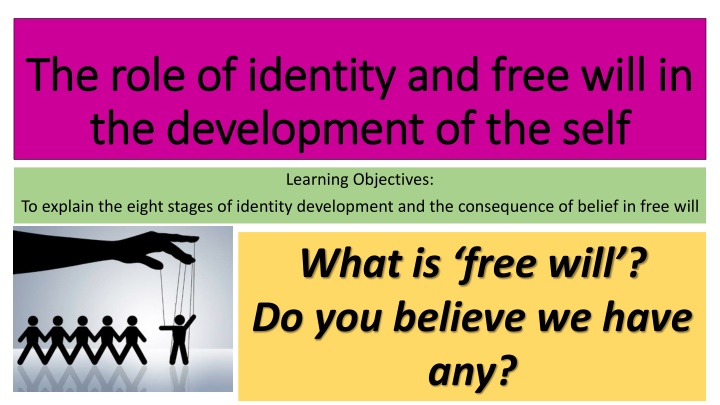
The Development of Identity and Free Will
Explore the eight stages of identity development proposed by Erikson, emphasizing the importance of resolving crises at each stage for successful growth. Delve into the consequences of belief in free will and the impact on self-control and decision-making. Discover the strengths and weaknesses of Erikson's theory and the different perspectives on the existence of free will.
Download Presentation

Please find below an Image/Link to download the presentation.
The content on the website is provided AS IS for your information and personal use only. It may not be sold, licensed, or shared on other websites without obtaining consent from the author. If you encounter any issues during the download, it is possible that the publisher has removed the file from their server.
You are allowed to download the files provided on this website for personal or commercial use, subject to the condition that they are used lawfully. All files are the property of their respective owners.
The content on the website is provided AS IS for your information and personal use only. It may not be sold, licensed, or shared on other websites without obtaining consent from the author.
E N D
Presentation Transcript
The role of identity and free will in The role of identity and free will in the development of the self the development of the self Learning Objectives: To explain the eight stages of identity development and the consequence of belief in free will What is free will ? Do you believe we have any?
Eight stages of identity development Erikson built on Freud s psychodynamic idea that we develop through stages Erikson 1959 focused on mental and social development and looked at our whole lifespan from birth to old age and how we build our identity through crises We develop through 8 stages, each which occurs at a different age This is originally a biopsychosocial theory (biology, psychology and social factors all play a role)
Development through a sequence Erikson said that a psychological problem can occur if we do not develop through normal stages Importance of other people in our development is highlighted Each stage has opposite alternatives (e.g. trust and mistrust) Individuals need to resolve each crisis to successfully complete a stage
You will be given one line of this table, you need to learn it, make notes to summarise the stage and then teach to someone on your table. Your table needs to be completed by talking to others who have a different line
Strengths and weaknesses Strengths Weaknesses - Can be applied to people throughout their lifespan - Practical applications: Goodcase and Love 2016 suggest using Erikson s ideas about integrity and despair with therapists working with those over 65 showing that older people are skill developing and can benefit from examining their own beliefs - Cultures have wide differences and it doesn t consider other cultures (done in USA) e.g. marriage at 13 in some cultures is normal - Gilligan 1982 criticised Erikson s theory for using gender stereotypes such as intimacy or isolation being about women more than men
Consequence of belief in free will Baumesiter 2008 looks at free will which is about self-control and making rational choices Difference views about free will; If things happen because of our biology or our environment it is hard to say we are free in our decisions deterministic Jean Paul Sarte claimed that there is always a choice about an action Kant felt that freedom was about morality and sound reasoning but that only some actions are decided on in this way. Free will is about reasoned choices
Consequence of belief in free will Baumeister said that psychology must look at free will It can be studied scientifically Self-control and making choices is biologically expensive it can deplete our resources by using up a lot of glucose in our brain E.g. it was found that after blood glucose depletion, drinking lemonade with sugar improve people s self-control on tasks
Consequences Consequence of belief in free will A belief in free will explains our justice system: if nobody is responsible for their behaviour then how can we punish people. Our justice system believes in free will Belief in free will improves prosocial behaviour: can help with self control. People feel empowered A belief in free will improves control over emotions and impulses: rational decisions A belief in free will helps someone to learn from the challenges they encounter: can be reflective on any guilt or problems associated with negative events
Strengths and weaknesses Strengths Weaknesses - Focus on everyday understanding of what it meanst to act from free will - Baumeister and Munroe 2014 suggested that once social psychology can measure free will in terms of making choices and decisions, scientific experiments can be carried out to advance understanding of free will Vohr and Schooler 2008 did this experiment - When free will is tested it becomes specific to decision making tasks rather than wide spread can we generalise these findings - There are other explanations for what we might see as free will. Elbert and Wegnet 2011 carried out an experiment to see if randomness could be mistaken for free will and found that it could
Apply it Simon did not want to rob the old woman but the man was holding an iron bar menacingly and motioning for Simon to rob her. Simon even said sorry as he grabbed the old woman s bag and threw it at the man, who immediately ran off with it. The police were not sure whether to believe Simon s story. The old woman pointed Simon out at the thief so he was arrested. Use ideas about the consequences of a belief in free will to explain issues around Simon s arrest
Answer It seems that Simon believes in free will as he did not want to rob the woman, which suggests he thinks he usually would have a choice. A belief in free will is said by Baumeister to lead to more pro-social behaviour, because people feel more responsibility for their actions and are likely to control their actions more because of that. It is suggested that Simon is stealing the bag reluctantly and he says 'sorry which suggests pro-social behaviour is what he would normally do. However, if we believe in free will that means we believe in responsibility and our justice system rests on that idea. This means Simon should be punished as he did steal the bag.
Homework Task 2

